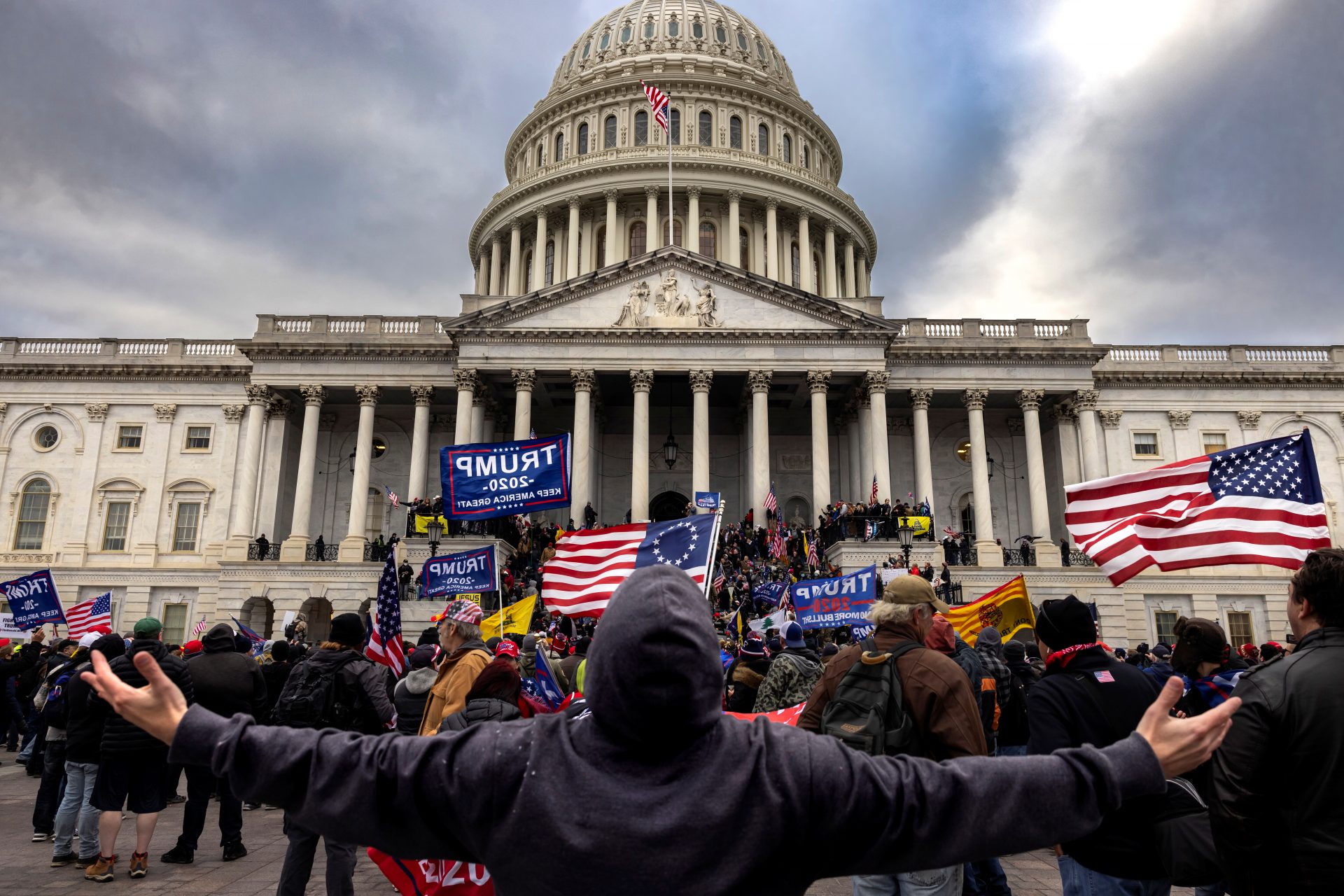Remember when a study revealed the weird and worrying beliefs of MAGA Republicans?
In January 2024, a study revealed some of the weirdest and most worrying beliefs of MAGA Republicans, including their higher propensity to support political violence compared to other groups in America.
Published in the journal PLOS One, the new research revealed that MAGA Republicans are much more likely to endorse the use of political violence than other Republicans and non-Republican groups. But how bad were the findings?
In order to understand the survey’s results it's important to first understand how the new research was conducted. Ipsos conducted a survey of 8,620 people between May 2022 and June 2022 that represented the makeup of the US.
PsyPost reported that important measures were taken into account and questions about the country’s democracy, society, and ethnicity as well as thoughts on the use of political violence were added to the survey to examine various views.
Specific questions about self-defense, the protection of democracy, and the response were asked to gain more insight into the minds of participants so that they could be divided into four groups based on their answers.
The four groups included MAGA Republicans, strong Republicans, other Republicans, and non-Republicans. MAGA Republicans were defined as those who voted for Donald Trump and strongly disagreed with 2020 election results.
When questioned about using violence as a means to advance political objectives, 58% of survey respondents who were identified as MAGA Republicans said using violence was justifiable—which was far larger than other groups.
Only 38.3% of those identified as strong Republicans said that using violence to achieve political goals was fine while 31.5% of other Republicans and 25.1% of non-Republicans endorsed violence as a tool to achieve political objectives.
However, these weren’t the only worrying beliefs that the researchers found about MAGA Republicans. Nearly one-third (31%) believed that having a strong leader was important to maintain democracy in the United States.
Moreover, 19.2% of MAGA Republicans backed the idea that armed citizens should be patrolling polling stations, and 26.7% strongly or very strongly believed in the conspiracy theories put forth by QAnon regarding US institutions.
MAGA Republicans were also far less likely to believe that White Americans had more societal advantages than Black Americans, a view which was endorsed by 62.6% of non-Republican survey respondents.
Over half of MAGA Republicans reported they believed in the great replacement theory with 51% either strongly or very strongly agreeing with the idea that native-born White Americans were being replaced by immigration.
Finally, and maybe most worrying of all, 90% of MAGA Republicans believed there was a serious threat to democracy, and while high, all groups also perceived a rather larger level of perceived threat to the nation’s democracy.
For example, 74.4% of strong Republicans, 61.7% of other Republicans, and 70.1% of non-Republicans all reported that they perceived a threat to democracy in the US. It is likely, however, that the perceived threat differed among each group.
“The study’s findings suggest that MAGA Republicans, as defined, are a distinct minority — more likely than other Republicans to endorse racist and delusional beliefs, sometimes by very wide margins,” the study's authors wrote in their research paper.
One of the most interesting aspects of the research found that while MAGA Republicans are a lot more likely to endorse violence as a means to achieve political objectives, they are also less likely to engage in it themselves.
“Concern about the potential for political violence among MAGA Republicans appears to be justified, but it is noteworthy that they were not more willing than others to engage in violence themselves,” the study’s authors wrote in their conclusion.
“There is good news in the lack of willingness to engage in violence, but it comes with a caveat: support for violence by the unwilling may enable the willing to proceed.” study author Garen Wintemute told PsyPost.
More for you
Top Stories






























